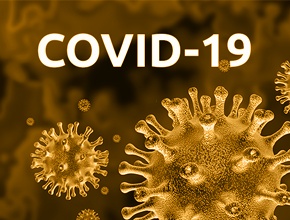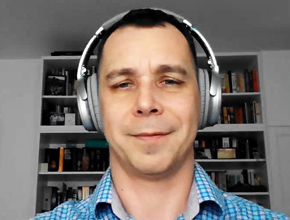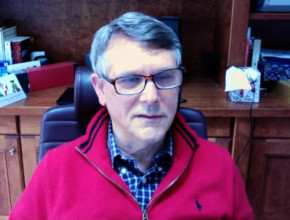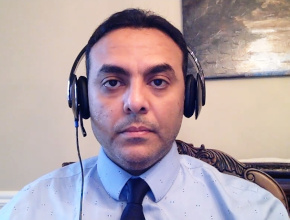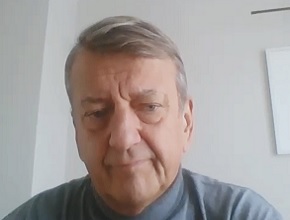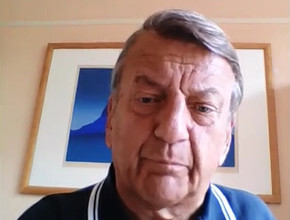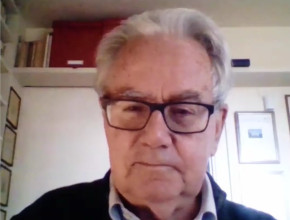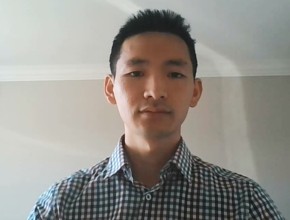Dr Jean-Louis Vincent, professor of intensive care medicine at Université libre de Bruxelles, past president of the World Federation of Societies of Intensive and Critical Care Medicine and the European Society of Intensive Care Medicine, accomplished author and researcher, talks to Dr Roman Jaeschke about the current COVID-19 situation in Belgium and effectiveness of available treatments.
Roman Jaeschke, MD, MSc: Good morning. Welcome to another edition of McMaster Perspective. It’s been almost 3 weeks since we had the pleasure of talking to Professor Jean-Louis Vincent.
My first question: Looking at various countries, there seems to be something different about Belgium. Could you start by commenting on this?
Jean-Louis Vincent, MD, PhD: I’m not sure that the situation in Belgium differs a lot from that in other European countries. Maybe Germany is a bit less under pressure, but when you compare it to France, the Netherlands, Italy, or Spain, it’s quite similar. Our mortality rates are reported to be higher than in other countries and we believe that this is largely due to the fact that we have no government. We have had no government for about 1 year, so there is a little bit of vagueness and disorganization in the country and our politicians [hide] behind scientists. They say, “It’s the epidemiologists who should tell us what to do, we are just listening to them,” because they are too concerned about major criticisms.
So we have higher reported mortality rates than in other countries, but we believe this is partly due to overreporting in Belgium, especially in nursing homes, where sometimes the doctor is called when the patient has already died, they are told that the patient had some fever and a little bit of respiratory distress, and [they assume] it’s probably coronavirus disease 2019 (COVID-19). So it’s probably overrated.
We also believe—and that is more the epidemiologists’ approach—that other countries perhaps may be slightly understating the number of their COVID-related deaths. So there may be a little bit of overreporting in Belgium and underreporting in other countries.
Roman Jaeschke: Time will show how it will shape up.
Jean-Louis Vincent: I’m not so sure. When patients have died, it is difficult to go back and say if it was really COVID-19 or not. But there are other numbers that are important: the number of hospital admissions, which is clearly going down quite nicely in Belgium, and the number of patients admitted in intensive care units (ICUs).
We have never been overwhelmed in Belgium. Hopefully we could cope with that. We have a reasonable number of ICU beds—not as many as in Germany, but still we could manage the patient load we had in Belgium.
Roman Jaeschke: I’m glad to hear it. Thank you for your comments on Belgium.
Now let’s go to specific treatments. What is the lay of land now, 3 weeks later?
Jean-Louis Vincent: People believe less and less in hydroxychloroquine. Obviously it’s not really so effective.
We have a lot of discussions about remdesivir. It is a drug that may provide a little bit of a benefit. We have the American study, which will appear in the New England Journal of Medicine, and the smaller Chinese study, already published in the Lancet, with not so significant differences. So there may be a slight effect of remdesivir, but the costs will be very high. The drug company is not stupid and people believe that they will sell it at about US $4500 per treatment. For something that does not significantly reduce mortality, it’s a very high cost. A little bit of a benefit at a very high cost. I don’t know how this will really make progress, especially outside the United States.
We are all quite excited about plasma therapy. We have started it in Europe and in the United States, and the results are eagerly awaited. We do not have so much plasma available in Belgium, but the study starts now, so let’s hope that this will bring some benefit.
It’s interesting to see that companies are already interested in making specific antibodies and that could be the future. If plasma works, we could have specific antibodies to administer to infected patients.
There are also some other intriguing things. You may remember the small study from France suggesting that smokers are relatively protected. Now they are launching a study with transcutaneous nicotine patches. There is a good rationale that nicotine could perhaps interfere with the neurological response to the virus. So yes, there is a rationale, it’s not coming out of the blue. Will it be highly effective? Maybe not, but if it can help a little bit, that’s not too costly.
Roman Jaeschke: They can always ask patients to smoke, which would be even less expensive. But hopefully not.
Jean-Louis Vincent: That’s right. But transcutaneous patches are OK.
Then there is this interesting story from preclinical data showing that estrogens may be protective. Indeed, we have learned that women have a less severe form of the disease than men—in general, statistically, of course, but perhaps estrogens could afford some protection. There are some animal studies showing that. So maybe estrogens could be used, on a short-term basis, of course, in people who are getting sick. Who knows?
There are a lot of new things coming out like this. It’s exciting. Although now, as we see fewer and fewer of these patients, we have fewer opportunities to study new therapeutic interventions. Whenever we launch a new study protocol, we find fewer patients.
Of course, there may be a second wave, we will see, but right now the research is not progressing so rapidly, I am afraid.
Roman Jaeschke: It’s a good thing it’s coming down in your country. In Canada I’m seeing thousands of new cases a day, obviously with different severity and different presentations. There’s also different drug availability and a long-term application process for grants, which probably also plays a role here.
Any other comments you would like to share with us? I will immediately tell you that in about 2 weeks I would like to hear from you again. Any predictions for the future?
Jean-Louis Vincent: Nobody can [predict how things will unfold], so I will not try either. Let’s hope that we will not have a second wave, or at least a significant wave, but nobody knows.
Today we start going out of the lockdown in Belgium, like in Italy, France, and other countries progressing along the same timelines. Hopefully the number of cases will not increase again. And if it is like that, if we can trace infected patients more effectively, we could hopefully contain it for the months to come until we have a vaccine available.
Roman Jaeschke: Thank you very much for this interesting analysis of the current and future situation. You still predicted some things. Let’s see how things will unfold and I’ll invite you in about 2 weeks again.
Jean-Louis Vincent: As always, it was pleasure. Thank you very much.
 English
English
 Español
Español
 українська
українська

